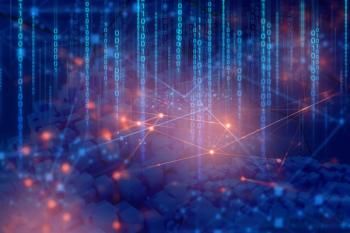
It’s Earth Day: Paper or Plastic?
Happy Earth Day!
PSYCHIATRIC VIEWS ON THE DAILY NEWS
Today is Earth Day 2024. Its theme is a trigger for me that brings me right back about 17 years ago to my epiphany about climate change and our environment. The global theme is: Planet vs Plastics.
On that day years back, our third grandchild was just born and her family visiting us. I was asked to go to the grocery store to purchase just a few items. At check-out, I was asked as usual: “paper or plastic?” Normally, I just would have blurted out one or the other without thinking, but this time I froze. Finally, I said: “That’s OK, I can carry them as is.” As I drove home, I realized I must have been influenced by my granddaughter’s future. I had just begun to pay attention to climate change and the environment. So, which was better for her future, plastic or paper? I looked into the answer once I got on the computer. Clearly, the answer was neither. It was bring your own bag(s), which would be reusable. And, off I went to see if other psychiatrists were interested in the problem. There were not many at the time, so I started to organize some activism in our field, which has now blossomed into the Climate Psychiatry Alliance and related organizations.
By now, I think there is also an answer in what to choose between plastic and paper if that choice needs to be made. It is paper.
The Earth Day organizers at
Plastic micro particles are commonly released from some food and drink containers. In the meanwhile, recommendations include using nonplastic containers, avoiding storing any plastic water bottles in hot locations, and using a water filter that can remove micro plastics. All of such recommendations are especially important for babies and young children with rapidly developing brains. We in psychiatry could help with effective messaging about this risk in our organizations and communities.
What also makes this year’s theme so important is that it goes beyond climate change and instability to include other environmental problems. For years now, as a consequence of the toxicity of plastics and other environment toxins, I have been writing and speaking about expanding our bio-psycho-social model, for those who use it, to bio-psycho-social-eco. The eco is for ecology, which covers the interaction of humans with the overall environment. Actually, in that spirit, I would alter the theme to Planet vs People. Only we can help reverse the course and turn to a more healthily sustainable environment.
Dr Moffic is an award-winning psychiatrist who specialized in the cultural and ethical aspects of psychiatry and is now in retirement and retirement as a private pro bono community psychiatrist. A prolific writer and speaker, he has done a weekday column titled “Psychiatric Views on the Daily News” and a weekly video, “Psychiatry & Society,” since the COVID-19 pandemic emerged. He was chosen to receive the 2024 Abraham Halpern Humanitarian Award from the American Association for Social Psychiatry. Previously, he received the Administrative Award in 2016 from the American Psychiatric Association, the one-time designation of being a Hero of Public Psychiatry from the Speaker of the Assembly of the APA in 2002, and the Exemplary Psychiatrist Award from the National Alliance for the Mentally Ill in 1991. He is an advocate and activist for mental health issues related to climate instability, physician burnout, and xenophobia. He is now editing the final book in a 4-volume series on religions and psychiatry for Springer: Islamophobia, anti-Semitism, Christianity, and now The Eastern Religions, and Spirituality. He serves on the Editorial Board of Psychiatric Times.
Reference
1. Barcelo D, Pico Y, Alfarhan A.
Newsletter
Receive trusted psychiatric news, expert analysis, and clinical insights — subscribe today to support your practice and your patients.







